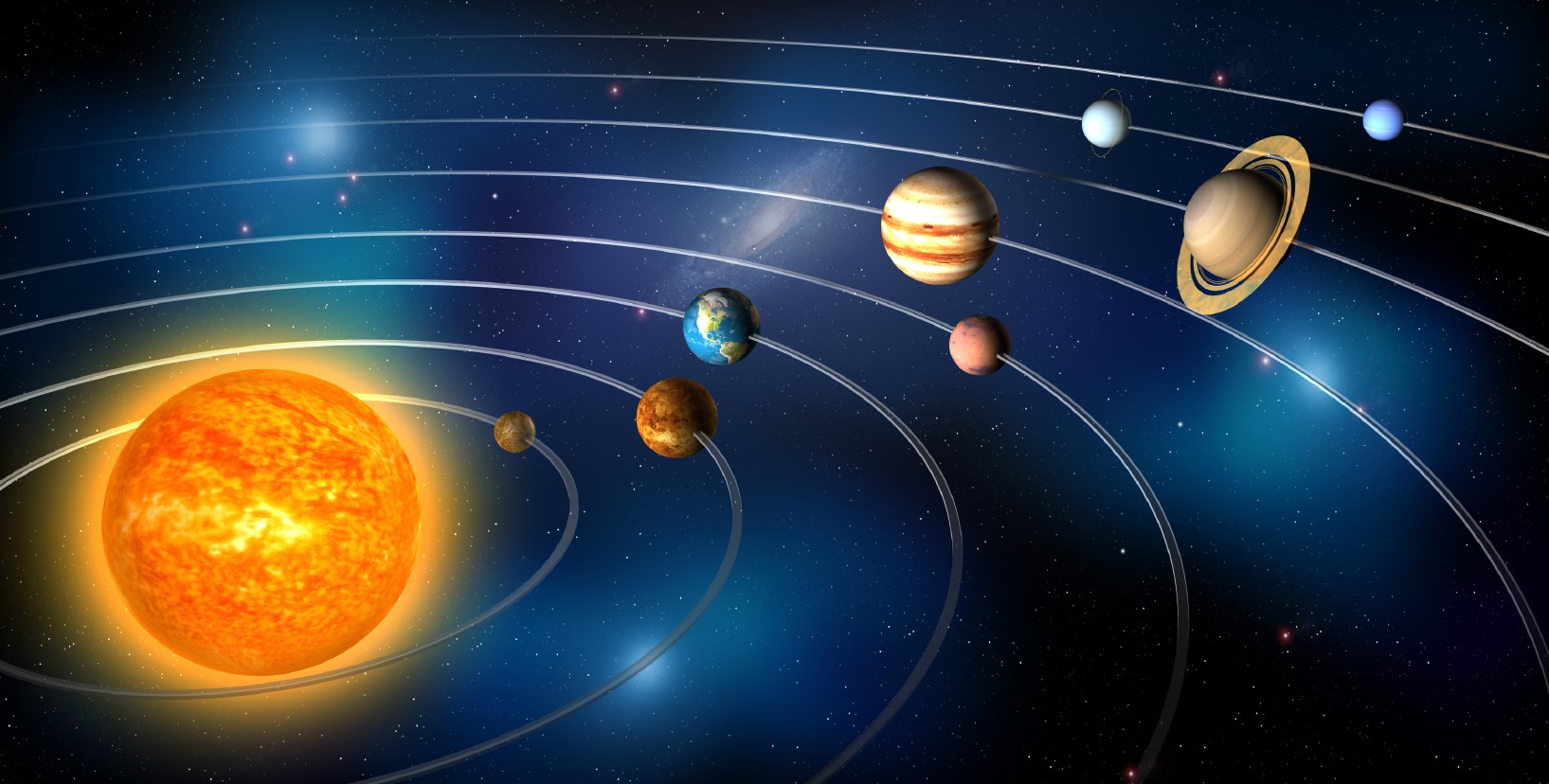
When it comes to the vast expanse of the universe, one of the most fascinating celestial bodies is our very own star, the Sun. The Sun, also known as a G-type main-sequence star, plays a crucial role in sustaining life on Earth and is a source of endless wonder and amazement. From its sheer size to its powerful energy output, there are countless mind-boggling facts about our solar system’s shining star. In this article, we will delve into the realm of the extraordinary and uncover 12 unbelievable facts about the Sun. So, sit back, relax, and prepare to be astounded by the astonishing wonders of solar!
Key Takeaways:
- Solar energy is an amazing, renewable power source that can reduce carbon emissions and create job opportunities while providing electricity to remote areas and even entire cities.
- The Sun’s energy can be turned into electricity using solar panels, and the future of solar energy is bright with exciting advancements and possibilities.
The Sun is a Massive Energy Source
The Sun, our very own star, is a mind-boggling powerhouse of energy. It radiates an astonishing amount of energy, estimated to be equivalent to 384.6 septillion watts per second. This massive energy source has been captivating scientists and researchers for centuries.
Solar Energy is Renewable and Sustainable
Solar energy is a remarkable form of renewable and sustainable energy. Unlike fossil fuels, which are depleting resources, the Sun provides us with an unlimited supply of energy. By harnessing the power of sunlight, we can reduce our reliance on non-renewable resources and contribute to a greener future.
Solar Panels Can Turn Sunlight into Electricity
One of the most astonishing facts about solar energy is the ability of solar panels to convert sunlight directly into electricity. Solar photovoltaic (PV) cells contain semiconductor materials that generate electricity when exposed to sunlight. This technology has revolutionized the way we generate clean and green electrical power.
Solar Power Reduces Carbon Emissions
Solar energy is a sustainable alternative to traditional energy sources such as coal and natural gas. By utilizing solar power, we can significantly reduce carbon emissions, which are a major contributor to climate change. Switching to solar energy helps combat global warming and create a cleaner and healthier environment.
Solar Energy Provides Remote Power Solutions
One incredible advantage of solar energy is its ability to provide power in remote areas. With solar panels and energy storage systems, off-grid locations can access electricity without the need for extensive infrastructure. This makes solar energy an ideal solution for powering remote villages, mobile communication towers, and even satellites in space.
Solar Power is Cost-Effective in the Long Run
Although installing solar panels may require an initial investment, the long-term cost savings are remarkable. Once installed, solar energy is essentially free, and the savings on electricity bills can be substantial over the years. Additionally, government incentives and tax credits make solar power even more affordable and accessible.
Solar Energy is Diverse in Application
Solar energy is incredibly versatile and can be used in numerous applications. From residential and commercial rooftops to large-scale solar farms and even solar-powered vehicles, the possibilities are endless. The adaptability of solar energy makes it a valuable asset in various industries and sectors.
Solar Power Creates Job Opportunities
The solar industry is a significant job creator worldwide. As the demand for solar energy continues to rise, so does the need for skilled professionals in installation, maintenance, and research and development. Embracing solar energy not only provides environmental benefits but also stimulates economic growth and employment opportunities.
Solar Energy Can Power Entire Cities
The capacity of solar energy is truly mind-blowing. In some cases, solar power plants are capable of supplying electricity to entire cities. These large-scale installations utilize vast arrays of solar panels to generate enough clean energy to meet the power demands of a considerable population.
Solar Panels Can Float on Water
A fascinating development in solar technology is the ability to create floating solar panels. Placing solar panels on bodies of water not only saves land space but also reduces water evaporation and provides cooling benefits, improving the overall efficiency of the panels. This innovation opens up exciting possibilities for harnessing solar energy in unique environments.
Solar Energy Can Power Spacecraft
Solar energy plays a crucial role in the exploration of space. Spacecraft, including satellites and space probes, rely on solar panels to generate power in the vastness of outer space. By capturing the Sun’s energy, these spacecraft can operate for extended periods, collecting valuable data and expanding our understanding of the universe.
The Future of Solar Energy is Bright
The potential of solar energy is limitless. Rapid advancements in technology, increasing efficiency, and falling costs make the future of solar energy incredibly promising. As we continue to unlock the full potential of this renewable energy source, we can expect to see even more astonishing developments in solar power in the years to come.
So there you have it, the “12 Unbelievable Facts About Solar.” From its massive energy potential to its diverse applications and sustainability, solar power truly has the capacity to revolutionize our world. Embracing this remarkable energy source is not only beneficial to the environment but also to our economy and future generations. Let’s harness the power of the Sun and create a brighter, cleaner, and more sustainable future.
Conclusion
In conclusion, solar energy is an incredible and fascinating power source with numerous benefits and remarkable facts. From its ability to harness the sun’s energy to its impact on reducing greenhouse gas emissions and providing clean, renewable power, solar energy is revolutionizing the way we generate electricity. The sheer scale of solar energy installations, the potential for cost savings, and the positive impact on the environment make solar power an essential part of the future energy landscape. As technology continues to advance, we can expect even more astounding discoveries and advancements in the world of solar energy. So, let’s harness the power of the sun and embrace the incredible possibilities of solar energy.
FAQs
1. How does solar energy work?
Solar energy systems use photovoltaic cells to convert sunlight into electricity. These cells generate an electrical current when exposed to sunlight, creating a direct current (DC) that is then converted into alternating current (AC) for use in homes and businesses.
2. Are solar panels expensive?
While the initial cost of installing solar panels can be significant, solar energy systems provide long-term savings by reducing monthly electricity bills. Additionally, various financial incentives and government rebates are available to make solar energy more affordable.
3. Are solar panels suitable for all climates?
Solar panels are designed to work in various climates, including cloudy or cold regions. However, the efficiency of solar panels may vary depending on the amount of sunlight available. Advances in technology have also made it possible to generate electricity from diffused sunlight, allowing solar panels to be effective in less sunny climates.
4. How long do solar panels last?
Solar panels have a lifespan of around 25 to 30 years. However, manufacturers often provide warranties for up to 25 years, ensuring the performance and durability of the panels.
5. Can solar energy be used at night?
Since solar panels generate electricity from sunlight, they are not able to produce electricity at night. However, solar energy systems can be combined with battery storage to store excess energy generated during the day for use at night or when there is no sunlight available.
6. Is solar energy environmentally friendly?
Yes, solar energy is environmentally friendly as it produces clean, renewable power without emitting greenhouse gases or pollutants. It helps reduce dependence on fossil fuels and mitigates climate change.
Solar energy's potential seems limitless, but there's still much to learn. Curious minds can explore amazing facts about solar panels, their diverse applications, and cutting-edge technology. Adventurers might find interest in solar backpacks that harness the sun's power on the go. Those seeking off-grid solutions should consider portable solar panels for energy independence. Whatever sparks your interest, the world of solar energy offers fascinating discoveries for everyone.
Was this page helpful?
Our commitment to delivering trustworthy and engaging content is at the heart of what we do. Each fact on our site is contributed by real users like you, bringing a wealth of diverse insights and information. To ensure the highest standards of accuracy and reliability, our dedicated editors meticulously review each submission. This process guarantees that the facts we share are not only fascinating but also credible. Trust in our commitment to quality and authenticity as you explore and learn with us.


